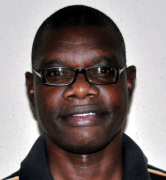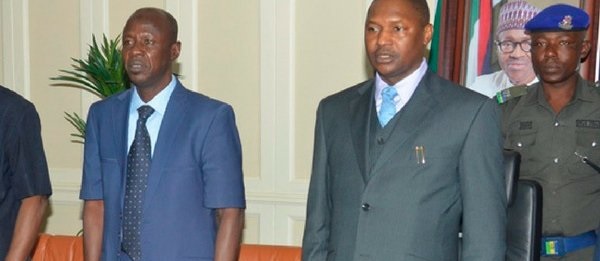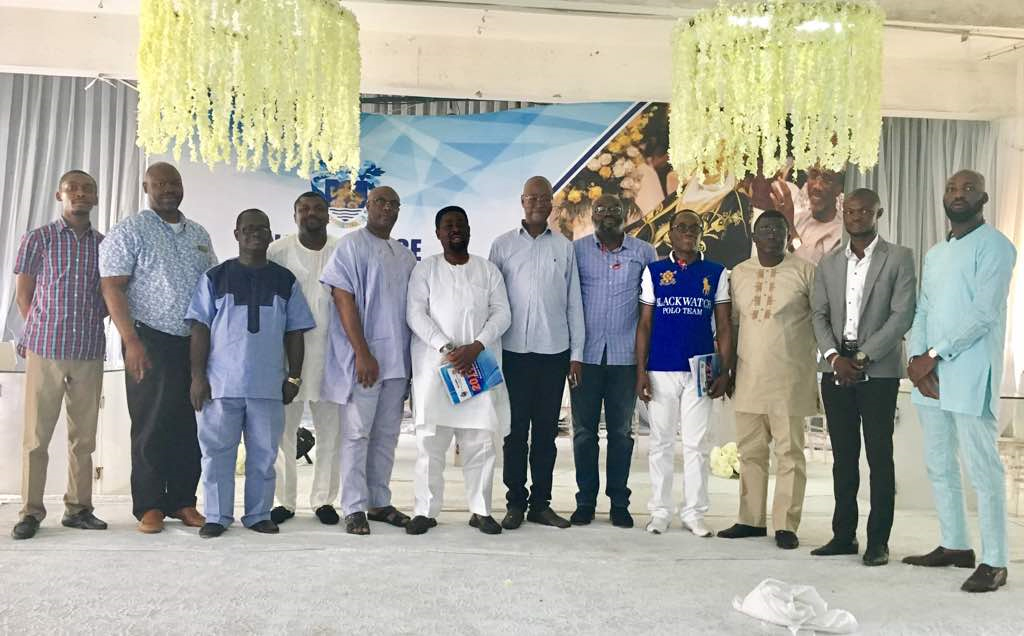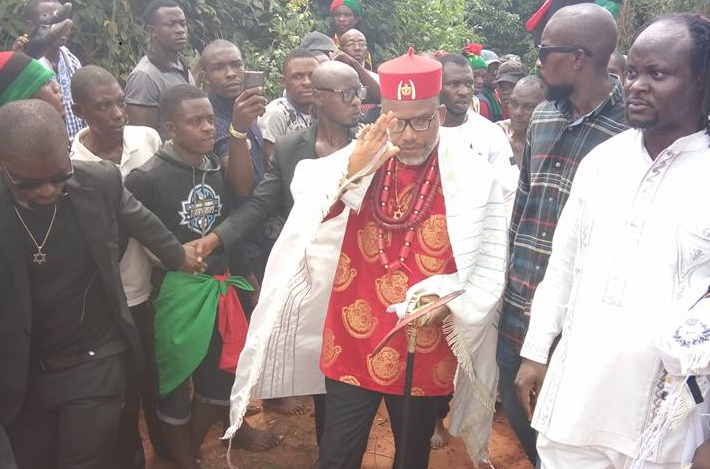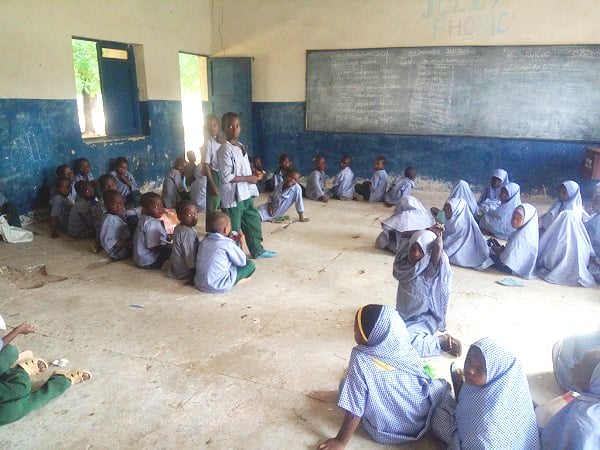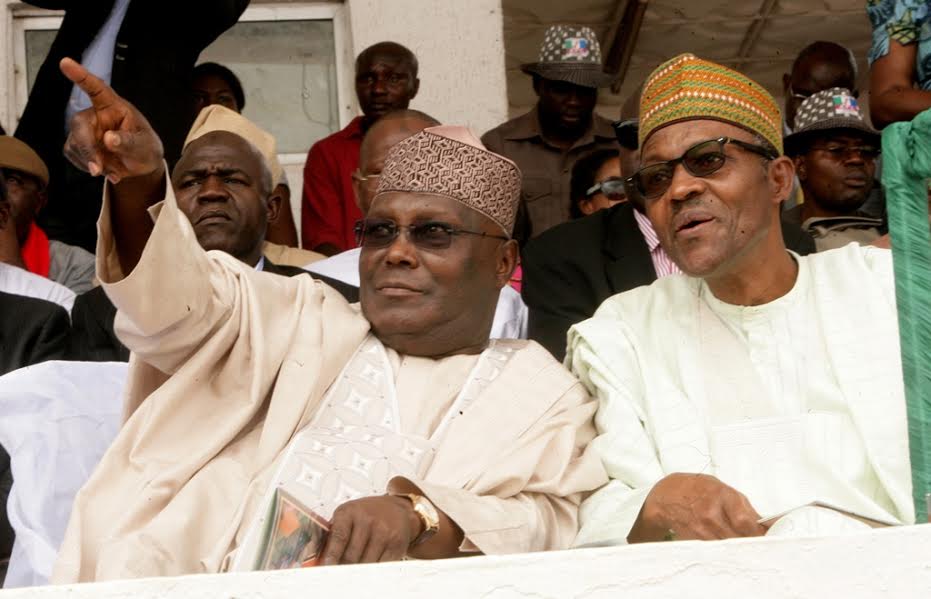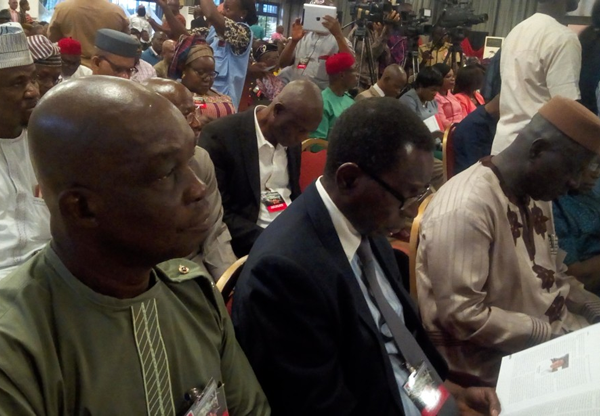Much as both labour to put up gestures suggesting cordiality, truth is there is no love lost between them. And interestingly, the one thing that came between them is corruption, which is also supposed to be the only thing that should see them basking in a harmonious relationship in this dispensation. What a paradox!
How to engage this terrible plague is the cause of the simmering discord in their affairs. Yet, between Abubakar Malami, Nigeria’s all-knowing Honourable Attorney General of the Federation and Minister of Justice, the one who never gives an inch in making the point that in all matters legal he is in charge, and Ibrahim Magu, the subordinate, less-obtrusive head of the Economic and Financial Crimes Commission (EFCC), it is not difficult to know who is more minded to waging a more concerted, frontal war against corruption which the administration they both serve promised to fight to a standstill.
First, a slice of these gentlemen’s background. As far as most Nigerians can remember, the one enjoyed a brief spell in a fuzzy limelight as junior to Dipo Opeseyi as attorneys for Muhammadu Buhari, then presidential candidate of the defunct Congress for Progressive Change (CPC) battling in court to upturn the declaration of Goodluck Jonathan as winner of the 2011 presidential election.
The other earned glittering epaulettes as a tested, uncompromising anti-corruption warrior from the days of Nuhu Ribadu as Chairman of EFCC. Also, while the one, with no antecedent whatsoever of vigorous combat with societal wrong merely thrived in the shadows of redoubtable defenders of the law, the other was, and still is, enmeshed in bruising battles with highly placed fraudsters and economic saboteurs operating in and out of the shores of Nigeria.
Advertisement
But for Magu’s exploits, bolstered, of course, by President Buhari’s rhetoric and body language, there is no way this administration would today beat its chest and announce progress, no matter how minimal, in the war against corruption. Only Magu, and his principal, it seems, are the ones really focused on slaying the dragon of corruption in the country.
Of course, the belief out there is that under Buhari’s watch corruption is thriving despite his well-known anti-corruption stance. He owes it a duty to wipe off this belief. But the real cause for worry in this administration’s anti-corruption campaign chain is Malami, the country’s chief law officer who is holding an office that is supposed to be seen in the forefront of the charge against a monstrous vice that his government has sworn to do everything to permanently tame.
Instead, it is this same AGF that appears to be confronting corruption with kid gloves, when he should be slugging with it in the mud with bare knuckles. In the face of the overwhelming decadence corruption has inflicted on the country, and given the unusual decisiveness with which the ruling All Progressives Congress pledged to curb it, it ought to be Malami, not Magu, that should be talking of seeing the task at hand as a matter of life and death, or a “do or die” affair, to use the language compatriots would easily understand – if not for anything but to save Buhari’s face.
Advertisement
You expect Malami to be the one donning his wig and gown and pounding the courtrooms as the leader of government lawyers prosecuting the big cases of corruption. No, he would rather ensconce himself in the cushion of ego trip. There he throws his weight around and drums it into as many ears as care to listen that he has all the powers under the law to define the law.
Not a surprise though. Like all the Attorneys General of the Federation, especially since the founding of EFCC, this one too is a fortune-hunter, a deal-maker whose primary interest is not to combat corruption but to snuff out the country’s foremost anti-graft agency to enable him have a field day to bargain with looters for a share of the loot.
To offer a snippet of how these AGFs not only compromise the integrity of their office but also work very hard to render the EFCC ineffective, Michael Aondoakaa as AGF and Minister of Justice in 2008 connived with then EFCC Chairman, Farida Waziri, to scuttle the arrest and trial of Liyel Imoke who no longer enjoyed immunity as his election as Governor of Cross River State had then been annulled by the election petition tribunal. Tunde Ogunsakin, then Director of Operations at EFCC, ordered the arrest. Rather than end up in EFCC interrogation room, Imoke ended up at Aodoakaa’s house. And that was the end of the matter.
Malami has sermonized on the poor prosecution of financial crimes and criticized the whistleblower policy for focusing on reward instead of the safety and protection of whistleblowers. But what has he done about it? What does it say of his office if an AGF whose government at inception swore to fight corruption with all its powers is only just waking up, after almost two years in office, to announce “plans” to create a central body to coordinate all criminal prosecutions in the country?
Advertisement
And on the protection of whistleblowers, pray, what has Malami done? At the moment, there are reports of persecution of whistleblowers in many government offices, but not a whimper of disgust ever issued from his office. But for the civil society and the media which took up the fight, Ntia Thompson, a deputy director in the Directorate of Technical Cooperation in Africa (DTCA), an agency of the Ministry of Foreign Affairs, who was sacked for reporting fraud in his office might not have been reinstated.
At the moment, there is Murtala Ibrahim of the audit department of the Federal Mortgage Bank of Nigeria (FMBN), a victim of similar unconscionable high-handedness, who was sacked by the management of the bank since May 8 for refusing to help cover fraud in the bank. This is one of a whole slew of cases Malami should promptly wade into not only to show that he really cares about whistleblowers’ safety, but also that he is serious about strengthening the anti-corruption war.
Onyeacholem is a journalist. He can be reached through Email: [email protected]
Advertisement
Views expressed by contributors are strictly personal and not of TheCable.
Add a comment
